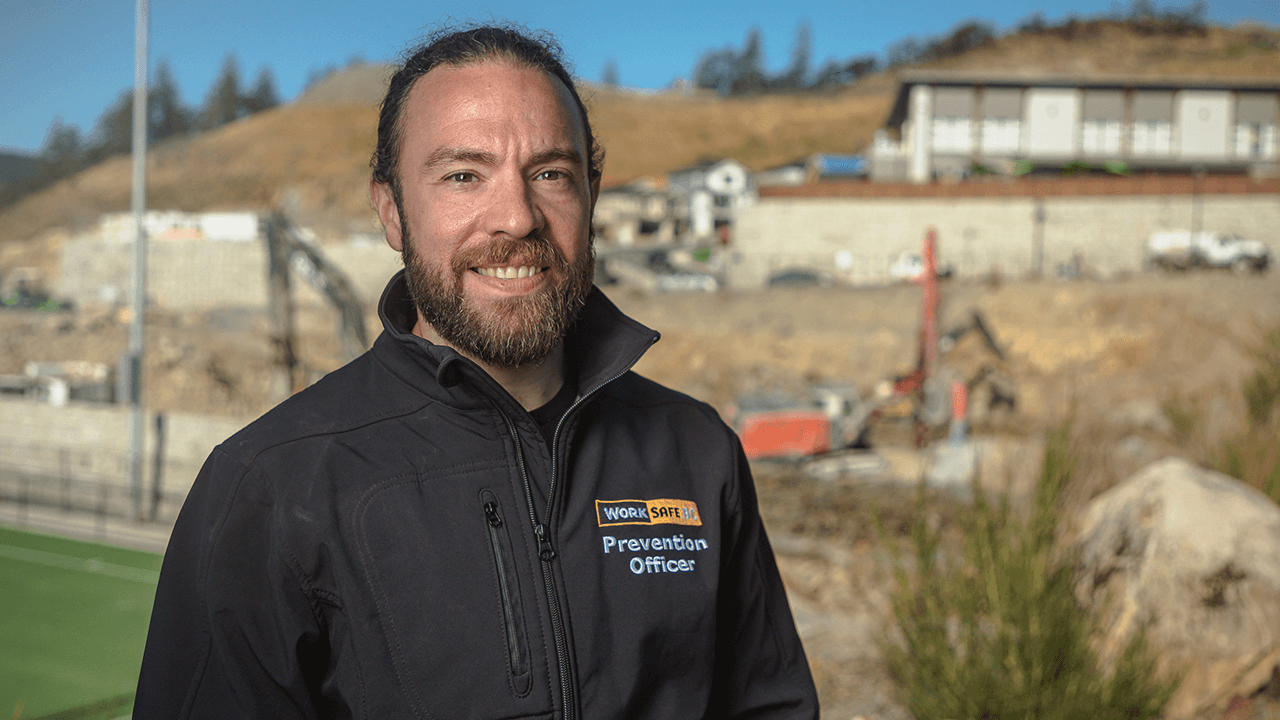Ask an officer: Mandatory concrete pump certification coming soon
WorkSafeBC occupational safety officer Cole Kannegiesser is sharing an important reminder that all concrete pump operators must be certified by January 1, 2024.
Cole Kannegiesser
Occupational safety officer, Victoria
Years on the job: 4.5
What is the new requirement?
As of January 1, 2024, anyone who operates a concrete pump or placing boom at a workplace must be a Certified Concrete Pump Operator (CCPO).
Each worker’s certification must match the equipment they operate:
- Tower placing boom
- High-pressure line pump (over 1,233 psi)
- Low-pressure line pump (1,233 psi and under)
- Truck-mounted boom pump (41 metres and under)
- Truck-mounted boom pump (over 41 metres)
Some levels of certification are combined. For example, obtaining the certification for truck-mounted boom pump (over 41 metres) also grants the operator the certifications for truck-mounted boom pump (41 metres and under) as well as the certification for low-pressure line pump.
How can my workers get certified?
Certification is a two-step process. Workers must pass a written exam, then undergo a practical assessment.
- The written exam is a multiple-choice test. It covers general theory and safety, including questions on vehicle operation and pump set-up, operation, and cleaning. The test is taken online and takes about an hour to complete. To pass, a worker must score at least 70%.
- Once the worker has passed the written exam, they then take the practical exam. This is a full-day evaluation in which a professional assessor observes the worker on their jobsite. The worker will need to demonstrate essential skills for safely operating a concrete pump, including set-up, priming, placing, and clean-out. As with the written exam, a worker must score at least 70% overall to pass. They must also earn a passing grade in each of the test’s five individual competency areas.
- Currently, the BC Construction Safety Alliance is the only approved provider for certification. The fee for the written exam is $250. The fee for the practical exam is $1,500. When complete, the certification is valid for five years.
Why is this new requirement being introduced?
Concrete pumps are an increasingly valuable tool on the jobsite. The number of workers using them is growing so rapidly that new operators aren’t always able to gain the necessary knowledge from their employers or more experienced operators. This has led to a rise in incidents – everything from equipment rollover to high-voltage contacts to "worker struck by" occurrences.
- Certification helps ensure all operators have a consistent knowledge base. It provides employers with a simple way to verify that pump operators coming onto their worksites are qualified to do the work. Most importantly, it helps workers better recognize and assess risks. This will ensure fewer incidents, injuries, and fatalities.
What if one of my employees isn’t certified by January 1, 2024?
As an employer, you’re responsible for ensuring your workers comply with this important safety requirement. If necessary, a worker who is not yet certified may operate concrete pump equipment under the supervision of a certified operator. However, if an uncertified and unsupervised worker operates a concrete pump after January 1, 2024, both you and the worker will be contravening regulatory requirements and may face a penalty.
Have your workers sign up for certification as soon as possible to ensure they complete the process before the requirement comes into effect on January 1.
Where can I get more information?
To learn more and to register, visit ccpo.ca.
This information originally appeared in the Fall 2023 issue of WorkSafe Magazine. To read more or to subscribe, visit WorkSafe Magazine.

